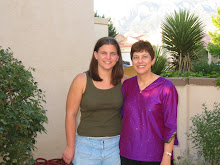
To the extent that teachers can close the techno cultural gap, teachers can better relate to and understand their students and the digital environment in which they live. Teacher awareness of and respect for the social networks and special interest groups teens have created on-line - whether they are hanging out and messing around or seriously geeking out - is a prerequisite to understanding our digit natives.
Mutual respect and understanding provides a safe, nurturing learning environment. Though somewhat elusive in a rapidly evolving landscape, understanding definitions for digital media, literacy genres and forms of communication would allow teachers to dialogue with their students about student practices. (As an ESL teacher, it is interesting to note that the MacArthur researchers used functional definitions for genre and defined groups by degree of intensity.) It is similar to learning a second language in order to understand the culture and customs of the users of that language. When a school has a majority interest in that particular culture, it is the responsibility of the educators to develop cross-cultural awareness and understanding.
Those of us who live in a "foreign" environment adapt to life both consciously and unconsciously. The digital demands are so strong that all teachers adapt or perish - a Darwinian imperative. It is virtually impossible to teach at ISB without a laptop in tow. However, to adopt a new language, a person must be motivated and/or have a compelling need to communicate with others who already speak that language. Then, the question becomes how motivated are we as educators or how compelling is our need to adopt this digital culture or will we insist that our tech savy students acclimate to the school's tradition culture.
By maintaining existing school structures, educators can avoid adopting the digital culture, but changing school structures would propel teachers into the digital age. This requires change agents who believe in the power of digital media to motivate, to challenge, and to educate children. People who have already crossed the digital divide, have seen the potential and share their vision will lead the way. Educational networks can and will allow students to have instant and up-to-date access to information; exchange ideas with peers worldwide; and contribute their own creations, inventions, stories to the public domain.
The conclusion of the MacArthur report is remarkable for its simplicity and its wisdom - the best preparation for the future is responsible and constructive participation in the authentic public forum the digital network provides. It is with some apprehension that I envision a new role for the teachers: to throw off the cloak of knowledge purveyors and curriculum developers and take on the mantle of role models and co-participants in what for some of us is "foreign" soil.


I love your statement:
ReplyDeleteMutual respect and understanding provides a safe, nurturing learning environment.
I believe this is something all teachers can support, but it's interesting to see that it's more of a struggle to find mutual respect on understanding for new forms of online or digital communication.
You've just reinforced for me something I've been saying for ages: As adults and teachers we already know all of the behaviors, attitudes and experiences we need to create and nurture in our classroom, we just need to add the newest societal changes into the mix.